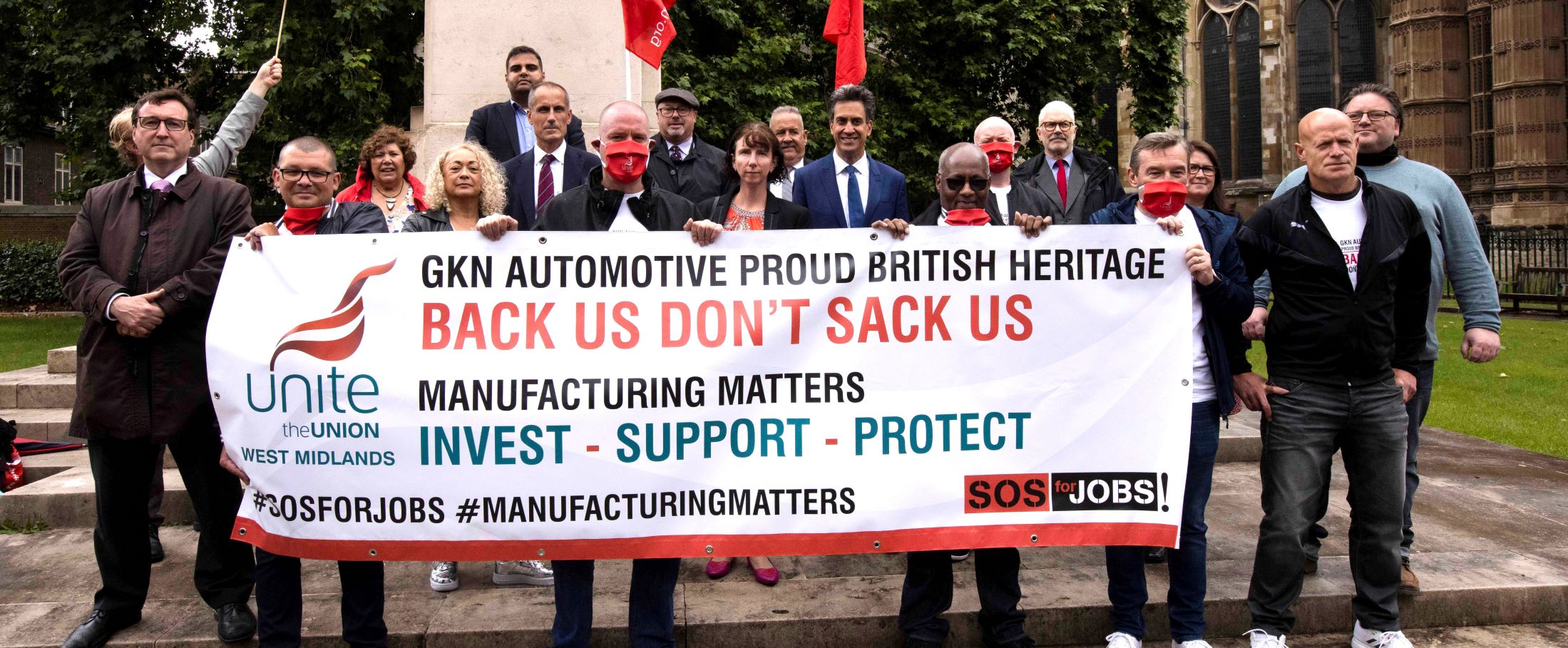End the uncertainty
In our final series installment we hear from Trish Ford, senior rep, Toyota vice-chair
The automotive industry supports more than 800,000 jobs across UK, from WrightBus in Ballymena to Honda in Swindon. One of the secrets of the sector’s success has been the £8bn worth of investment in the industry in the last four years. The uncertainty being caused by the government’s mishandling of Brexit now looms over that investment, in turn threatening jobs.
To restore some certainty the Unite Manufacturing Combine has launched a new strategy, Brexit on Our Terms, which sets out the concerns and priorities of our members across manufacturing.
Â
The strategy draws on the experience of Unite members to examine the potential impact of Brexit on manufacturing including; the threat to inward investment, the future of the UK-EU supply chain, access to European research funding, and the future of European Works Councils.
Our automotive industry is truly international, from Japanese manufacturers Honda, Nissan and Toyota, to German owned BMW and Indian owned Jaguar Land Rover. This is as true for the supply chain as it is for assembling plants. In the German state of Bavaria alone over 1,500 companies export vehicle component parts to the UK.
This internationalism has been underpinned by the UK’s access to the Single Market and it is the uncertainty around the future of this access that has resulted in the threat to continued investment.
At the time of writing vehicles continue to roll off production lines; however, that is because those vehicles are the result of investment decisions made two to three years ago. The real threat comes with the next investment cycle.
From future generations of the Honda Civic, which will begin production in 2023, to future generations of the Nissan Qashqai and Range Rover Sport; the investment decisions for new models will be made in the two-year window following the expected triggering of â€Article 50’ in 2017.
Put simply, why would an international firm risk investing in the UK if the ability to trade into Europe is in doubt? To remove this doubt we are calling for the government to make it clear that securing tariff-free access to the Single Market is a key priority in the negotiations to come.
Industrial stategy
In the long term the upcoming Brexit negotiations must ultimately be linked to the government’s promise of an industrial strategy. If this promise is going to mean more than just a new ministerial doorplate it must be long term, interventionist and drawn up in consultation with trade unions.
The Manufacturing Combine proposes that such a strategy must marshal all the options at the government’s disposal including: direct support for strategic industries; investment in infrastructure projects; removing barriers to reshoring jobs; use of the public sector procurement budget to support manufacturing; and closing the skills gap by investing in apprenticeships.
The government need look no further than the automotive sector, both abroad and in Europe to see how those ideas can be realised.
For example, in Germany large employers such as BMW or Mercedes are encouraged to train more apprentices than they need so that they can be released throughout the supply chain. In contrast some large employers in the UK act as a skills â€sinkhole’, draining the surrounding supply chain.
If the government is serious about mitigating the potential impact of Brexit on the automotive sector the most obvious place to start is procurement. The UK’s public sector procurement budget stands at £200 billion, but previous little is spent on supporting manufacturing.
The government could easily amend the Social Value Act 2013 to better support and direct local councils, police forces, fire brigades and other public bodies to source their vehicles from UK manufacturers by considering the â€social value’ of the contracts they award, not just lowest price.
Such a policy would create a strong and stable internal market within the UK and could easily be replicated for other manufacturing sectors. Will HS2 result in more trains being built in Derby? Will Hinkey Point C or the Heathrow expansion fill the order books of British steel firms?
The need for a proactive industrial strategy to be linked to the impact of Brexit is obvious. It is a clear example of how when it comes to the major issues posed by Brexit, Unite members are providing detailed answers before the so-called â€Brexiteer’ Ministers have even worked out the questions.
It shows why Unite, as the representative of over half a million manufacturing members, has a voice that must be heard.
The new strategy can be downloaded here:
 Like
Like Follow
Follow
